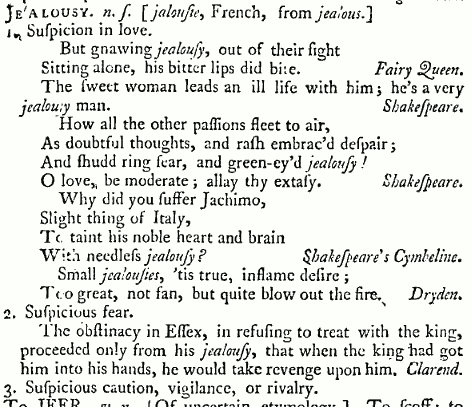Today would have been dictionary pioneer Samuel Johnson's 308th birthday and to honor his important innovations, Google created an animated Google Doodle just for him.
» RELATED: Google honors Japanese art director Eiko Ishioka with doodle
Here are 5 things to know about Samuel Johnson:
1. He authored “A Dictionary of the English Language,” which was published in 1755.
Before there was the renowned Oxford Dictionary (published in 1884), there was “A Dictionary of the English Language.”
Johnson spent nine years working on the 18-inches-tall dictionary, which, according to Britannica.com, spanned two volumes.
» RELATED: What is the Silent Parade? Google honors iconic 1917 civil rights march
2. It wasn’t the first dictionary ever published, but it was a pretty big deal.
Johnson’s dictionary wasn’t like the earlier dictionaries. Each word was precisely defined with language history, grammar and synonymous words or phrases.
According to Britannica.com, Johnson incorporated "the copious citation of quotations from the entire range of English literature, which served in support and illustration and which exemplified the different shades of meaning of a particular word."
» RELATED: Google honors baritone singer Eduard Khil with doodle
Google also noted Johnson's innovation, writing that Johnson's dictionary "was more than just a word list: his work provided a vast understanding of 18th century's language and culture. His lasting contributions guaranteed him a place in literary history."
This is why his dictionary is considered among the most important works in literary history.
3. His dictionary had more than 40,000 entries.
The first edition of Johnson’s dictionary included 42,773 different entries and subsequent additions added a few more each time.
4. This is how he defined his job as a lexicographer:
A lexicographer is a “writer of dictionaries.” But Johnson added to that definision, decribing such an individual as “a writer of dictionaries; a harmless drudge, that busies himself in tracing the original, and detailing the signification of words.”
» RELATED: Google launches new AI-powered job search engine to help Americans find jobs
5. He often used literary quotations to help define words.
There are approximately 114,000 literary quotations included in Johnson’s dictionary.
His three most quoted sources are William Shakespeare, John Dryden and John Milton.
Learn more about Johnson and his dictionary at Johnsonsdictionaryonline.com.
About the Author
The Latest
Featured




